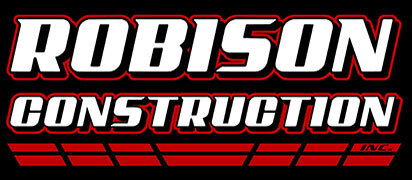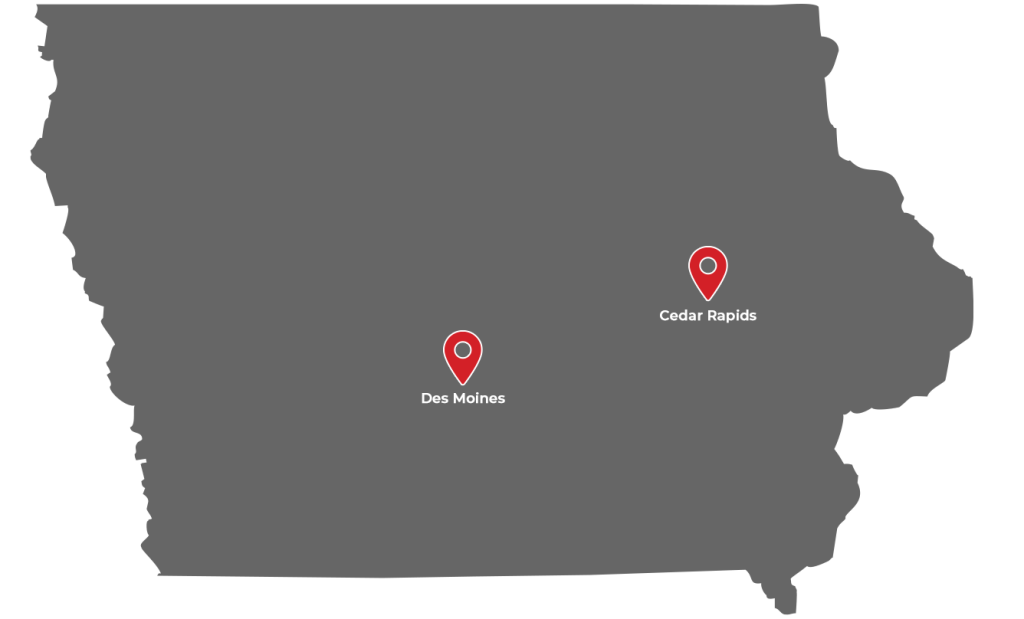Your roof does more than protect you from rain, snow, and wind. It also plays a crucial role in the comfort, safety, and energy efficiency of your home. One of the most overlooked — but most important — aspects of a healthy roofing system is ventilation.
At Robison Construction, we’ve worked with hundreds of homeowners in Cedar Rapids and throughout Eastern Iowa. Time and again, we see the same issue: improper ventilation causing damage, high energy bills, and shortened roof life. In this blog, we’ll explain why proper roof ventilation matters, how it affects your home, and the steps you can take to ensure your roof performs at its best.
What Is Roof Ventilation?
Roof ventilation is the system of intake and exhaust vents that allow air to circulate through your attic. This balance of airflow helps regulate temperature and moisture levels, creating a healthier environment for both your roof and your living space.
A properly ventilated roof system generally follows the “1:150 rule” recommended by building codes: one square foot of vent area for every 150 square feet of attic space.
Why Roof Ventilation Matters in Cedar Rapids
Cedar Rapids homeowners face unique challenges because of Iowa’s climate. Summers are hot and humid, while winters bring freezing temperatures, snow, and ice. Without proper ventilation, your attic can trap heat and moisture year-round, leading to costly problems.
1. Energy Efficiency
In summer, attic temperatures in Iowa can exceed 130°F if air is not allowed to circulate. That trapped heat seeps into your living space, forcing your air conditioner to work harder and raising energy bills.
Statistic: The U.S. Department of Energy estimates that proper attic ventilation can reduce cooling costs by 10–12% annually.
Impact on Homeowners: In Cedar Rapids, where cooling costs peak during July and August, that savings can add up quickly.
By allowing hot air to escape and cool air to enter, ventilation reduces your HVAC strain and keeps your home more comfortable.
2. Moisture Control
During Iowa winters, warm air from your living space naturally rises into the attic. Without ventilation, it condenses on cold roof decking, leading to:
Mold and mildew growth
Rusted nails and fasteners
Rotting wood and insulation damage
Over time, this hidden moisture can compromise your roof’s structural integrity and create health hazards inside your home.
Customer Testimony
“We started noticing a musty smell upstairs and couldn’t figure out why. When Robison Construction inspected our attic, they showed us condensation on the decking from poor ventilation. They added proper intake and exhaust vents, and within weeks the smell disappeared and our home felt less stuffy. We’re so thankful they caught it before it caused bigger damage.” – David & Michelle K., Cedar Rapids
3. Ice Dam Prevention
Cedar Rapids winters bring heavy snow and freezing conditions. When attic ventilation is poor, warm air melts snow on the roof, which then refreezes at the eaves, forming ice dams.
Ice dams trap water, pushing it beneath shingles and into your attic. This causes leaks, insulation damage, and even interior ceiling stains. Proper ventilation maintains a uniform roof temperature, preventing the thaw-refreeze cycle that creates ice dams.
4. Extending Roof Lifespan
Roof replacements are expensive. The average cost in Iowa is $10,000–$15,000 depending on size and material. Without proper ventilation, even high-quality shingles deteriorate faster due to heat, moisture, and freeze-thaw stress.
Proper airflow helps protect shingle warranties, maintain roof integrity, and ensure your investment lasts its full lifespan — often 25–30 years with architectural asphalt shingles like GAF Timberline HDZ.
5. Protecting Indoor Air Quality
Poor ventilation doesn’t just hurt your roof; it can also affect your family’s health. When moisture builds up, mold spores can circulate through your HVAC system, triggering allergies, asthma, and respiratory issues.
By keeping your attic dry and balanced, roof ventilation supports cleaner indoor air for you and your loved ones.
 How to Know If Your Roof Is Properly Ventilated
How to Know If Your Roof Is Properly Ventilated
Here are some warning signs Cedar Rapids homeowners should look for:
Hot, stuffy air in the attic during summer
Condensation on windows or attic surfaces in winter
Rusted nails or water stains on the underside of roof decking
Uneven roof temperatures leading to ice dams
Shingles curling or blistering prematurely
If you notice any of these, it’s time to call a roofing professional for an inspection.
Types of Roof Ventilation Systems
There are several methods used in Iowa homes, depending on design and age:
Ridge Vents: Installed along the roof peak for consistent airflow.
Soffit Vents: Intake vents under eaves that draw cooler air in.
Gable Vents: Located on exterior walls near the roof peak.
Powered Vents: Fans that actively remove hot air from the attic.
At Robison Construction, we evaluate your attic size, roof slope, and home layout to recommend the best system.
DIY vs. Professional Ventilation Solutions
Some ventilation improvements, like clearing soffit vents of insulation blockages, can be handled by homeowners. But installing new systems — especially ridge and soffit vents — requires professional expertise to ensure proper balance and code compliance.
Improper installation can cause negative airflow (where intake and exhaust fight against each other), worsening the problem. That’s why working with a trusted contractor matters.
Why Choose Robison Construction
At Robison Construction, we don’t just build roofs; we build systems designed to perform in Iowa’s toughest weather. Cedar Rapids homeowners trust us because:
Local Knowledge: We understand the unique freeze-thaw cycles and humidity levels of Eastern Iowa.
Quality Materials: We install GAF Timberline HDZ and UHDZ shingles, backed by industry-leading warranties.
Comprehensive Inspections: We evaluate not just your shingles, but your ventilation, flashing, and insulation.
Trusted Reputation: As a locally owned and operated company, we’ve built long-term relationships with Iowa families who rely on us for honesty and craftsmanship.
The Cost of Adding Roof Ventilation
Ventilation upgrades are a fraction of the cost of full roof replacements. Depending on your home’s needs, Cedar Rapids homeowners can expect:
Soffit vent installation: $300–$600
Ridge vent installation: $500–$1,200
Attic fan installation: $400–$900
Full ventilation system during re-roof: included in most replacement packages
Considering that these improvements can extend your roof’s lifespan by years and lower energy bills, ventilation is one of the smartest investments you can make.
Final Thoughts
Proper roof ventilation may not be the first thing you think of when it comes to home maintenance, but it is one of the most important. From lowering your energy bills to preventing mold and extending your roof’s life, the benefits are undeniable.
For Cedar Rapids homeowners, where extreme heat, humidity, and freezing winters all take their toll, ventilation is not optional — it’s essential.
Call to Action
Is your attic properly ventilated? Don’t wait until you see water stains or ice dams. Contact Robison Construction today for a free roof and ventilation inspection. Visit robison-construction.com and let us help you protect your home, your investment, and your family’s health.






Leave A Comment